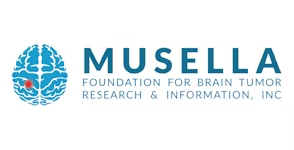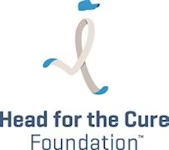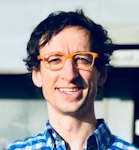MI-ONCOSEQ DMG Study
Email Principal Investigator

Carl Koschmann
CBTN Data
Backer
ChadTough/Defeat DIPG Foundation
Musella Foundation for Brain Tumor Research & Information, Inc.
Head for the Cure Foundation
About this
Project
The University of Michigan established the Michigan Oncology Sequencing Center (MI-ONCOSEQ) to use high throughput DNA sequencing technologies to advance the goals of precision cancer medicine. An “integrative sequencing approach” carried out in a CLIA-certified laboratory is utilized to provide a comprehensive landscape of the genetic alterations in individual tumor specimens for the purpose of identifying informative and/or actionable mutations. This data is then used to generate a clinical report and can support broader research efforts. Led by Drs Arul Chinnaiyan, Rajen Mody and Carl Koschmann, MI-ONCOSEQ is integrating their sequencing data of over 150 high-risk pediatric brain tumors with CBTN so that researchers from around the world can access this data.
Moving forward, DMG/DIPG international patients that enroll in PNOC22 or PNOC23 will be offered sequencing through MI-ONCOSEQ. In addition to providing a “clinical sequencing” panel of 1700 genes to families/clinicians, the MI-ONCOSEQ team will be performing research grade whole genome sequencing (WGS) of tumor and germline samples from these patients. This five year project (2022-2027) of clinical and research sequencing is currently funded at about 25% of its goal leaving an important gap in the information available to researchers looking to find novel markers of response and resistance in these tumors. Generous funding provided by ChadTough Defeat DIPG, the Musella Foundation for Brain Tumor Research & Information and a current fundraising effort through Head for the Cure Foundation, this gap has been bridged for the year ahead.
This effort will share all data (both clinical and research level) generated in real-time through CBTN, ensuring that researchers across the globe have access.
Ask The
Scientists
What are the goals of this project?
We have early data from the ONC201 phase 1 trial that tumor sequencing from patients DIPG/DMG can provide valuable insight into why some patients respond – and others don’t – to the most promising treatments for DMG/DIPG. We need to validate these findings in a broader international cohort prospectively to integrate these findings into regular practice. Additionally, WGS will allow us to find novel markers of response/resistance, and find patient specific markers, such as mutations in the mitochondrial DNA, that can serve as markers of response in liquid (CSF and blood) samples.
What is the impact of this project?
We believe this project will allow us to stratify future patients onto the treatments that are most effective for their individual tumor. As well these data will establish a platform for patient-specific liquid biopsy monitoring. DMG/DIPG patients haven’t had either of these in routine clinical care to date.
Why is the CBTN request important to this project?
CBTN is the largest pediatric brain tumor data and sample repository, and has the best infrastructure for depositing our data and getting to researchers and collaborators in real time. We get real-time analysis, collaboration, and discovery as well as infrastructural and philanthropic support.
the
Budget
- Goal
- 1500000
- MI-ONCOSEQ – clinical sequencing for DMG/DIPG patients on PNOC22/23 – DNA/RNA tumor germline 1700 gene panel – 50 patients/year ($4,000) = $200,000 per year
- Research whole genome sequencing for DMG/DIPG patients on PNOC22/23 – tumor/germline paired – 25 patients/year - $4,000/year = $100,000 per year
- Total $300,000 (per year) –$1,500,000 (5 year total, 2022-2027)
- Total raised to date $290,000 (96.6% year 1 ; 19.3% 5 year)
backing
Foundation and Family Partnerships

CBTN Executive Council
Musella Foundation for Brain Tumor Research & Information, Inc.
Why did you start the Musella Foundation? I got involved in brain tumors when my sister-in-law, Lana was diagnosed with a Glioblastoma back in 1992. We were told it was hopeless and that there were no clinical trials that would accept her as her tumor was too large. There was no centralized database

CBTN Executive Council
Head for the Cure Foundation
Why was Head for the Cure Foundation created?Chris Anthony was diagnosed with a glioblastoma multiforme (GBM) brain tumor in October 2000 at the age of 34. An avid runner, Chris had the idea to start a run to raise money and awareness for brain cancer. After his passing, Chris’ family, led by brothe
Kansas City, MO

